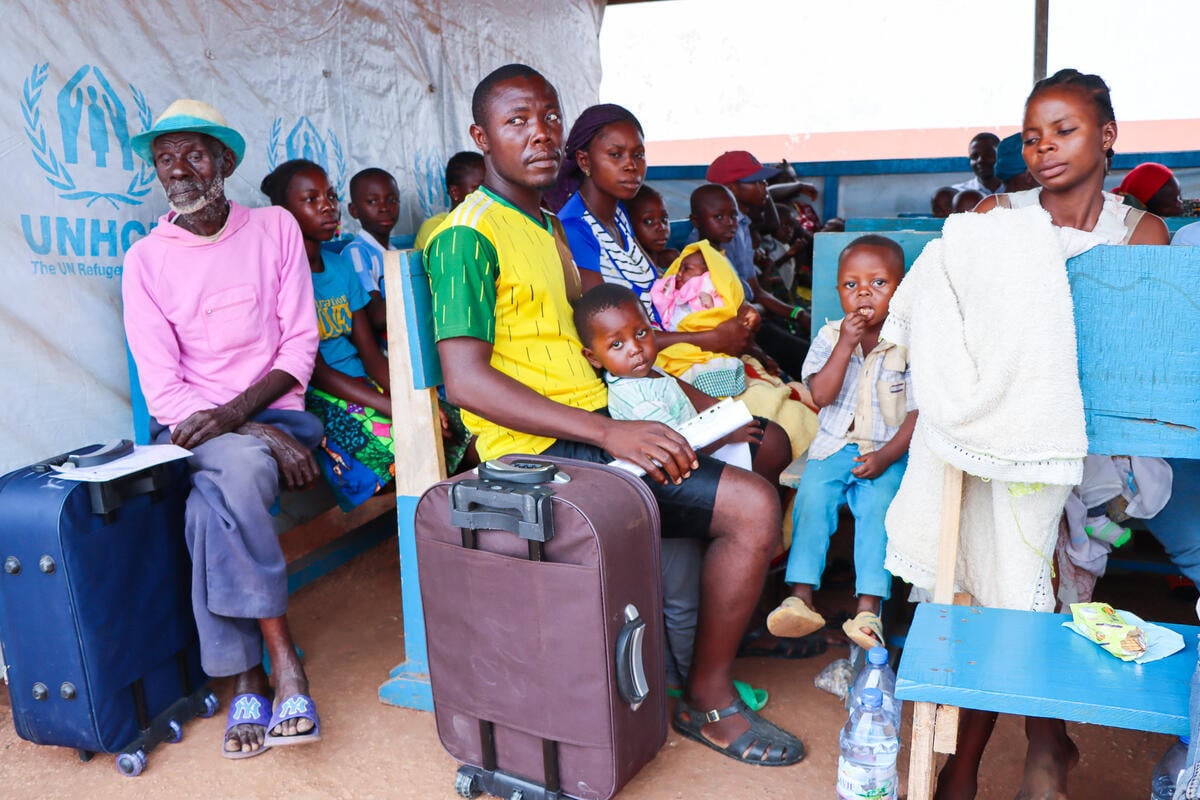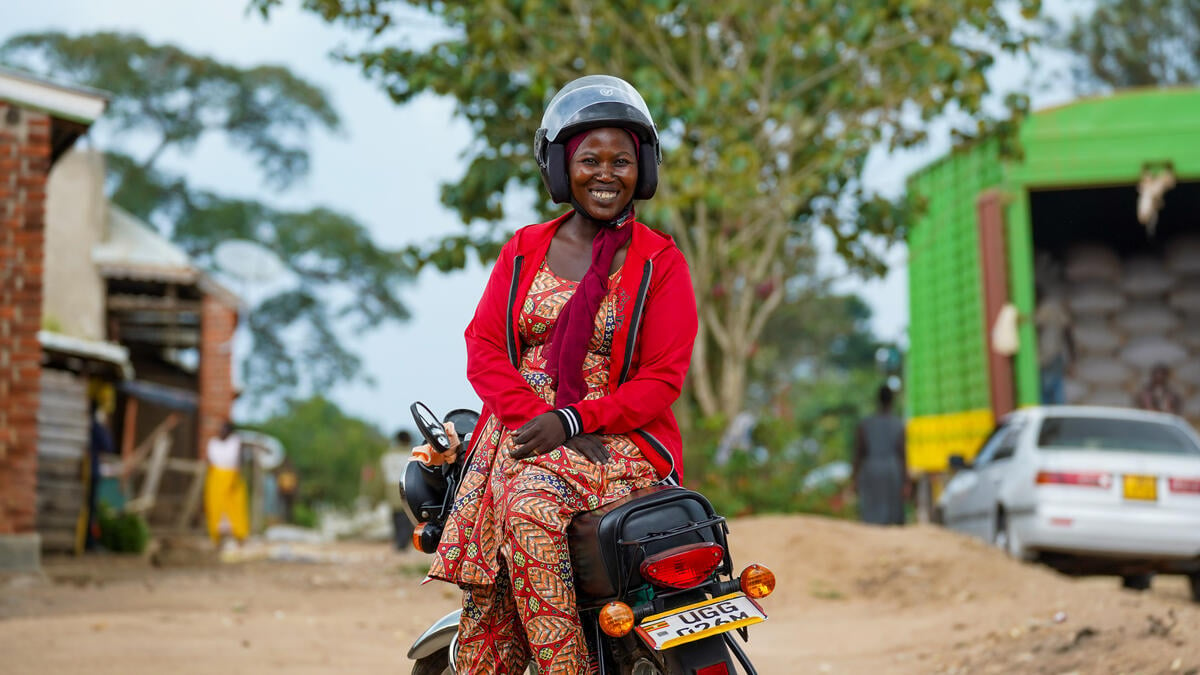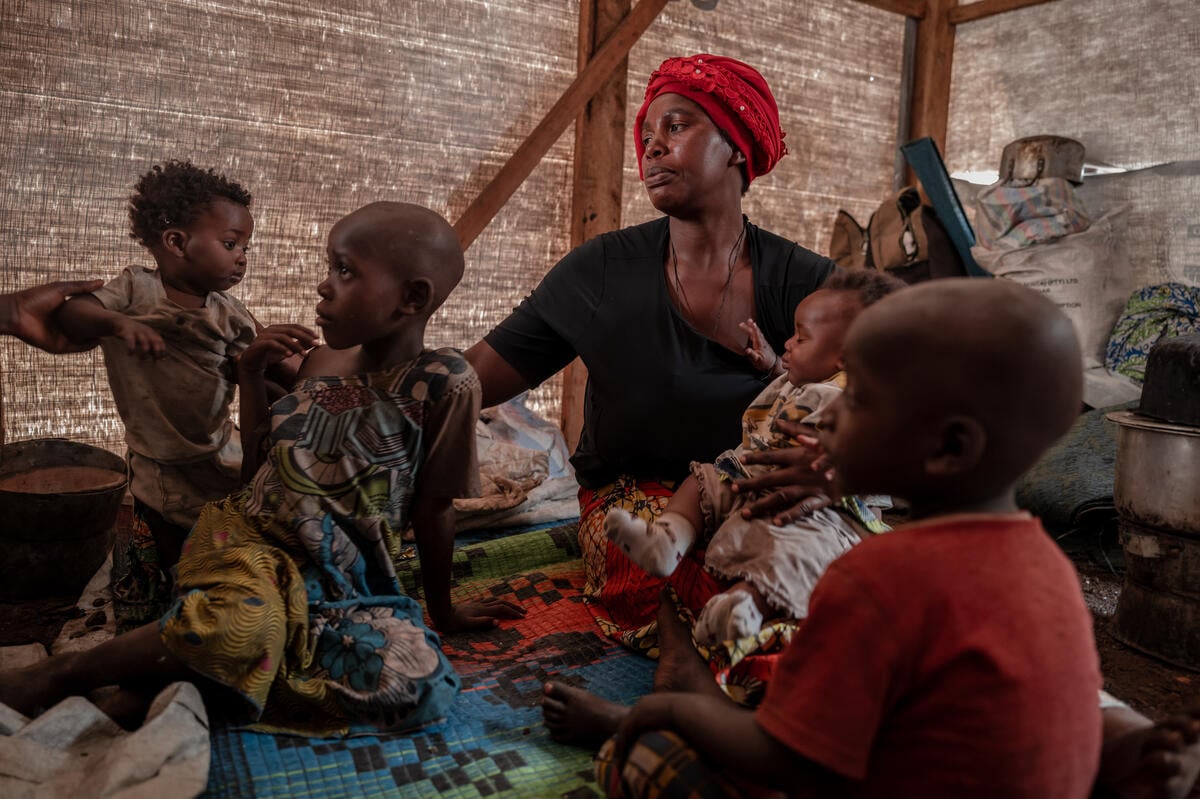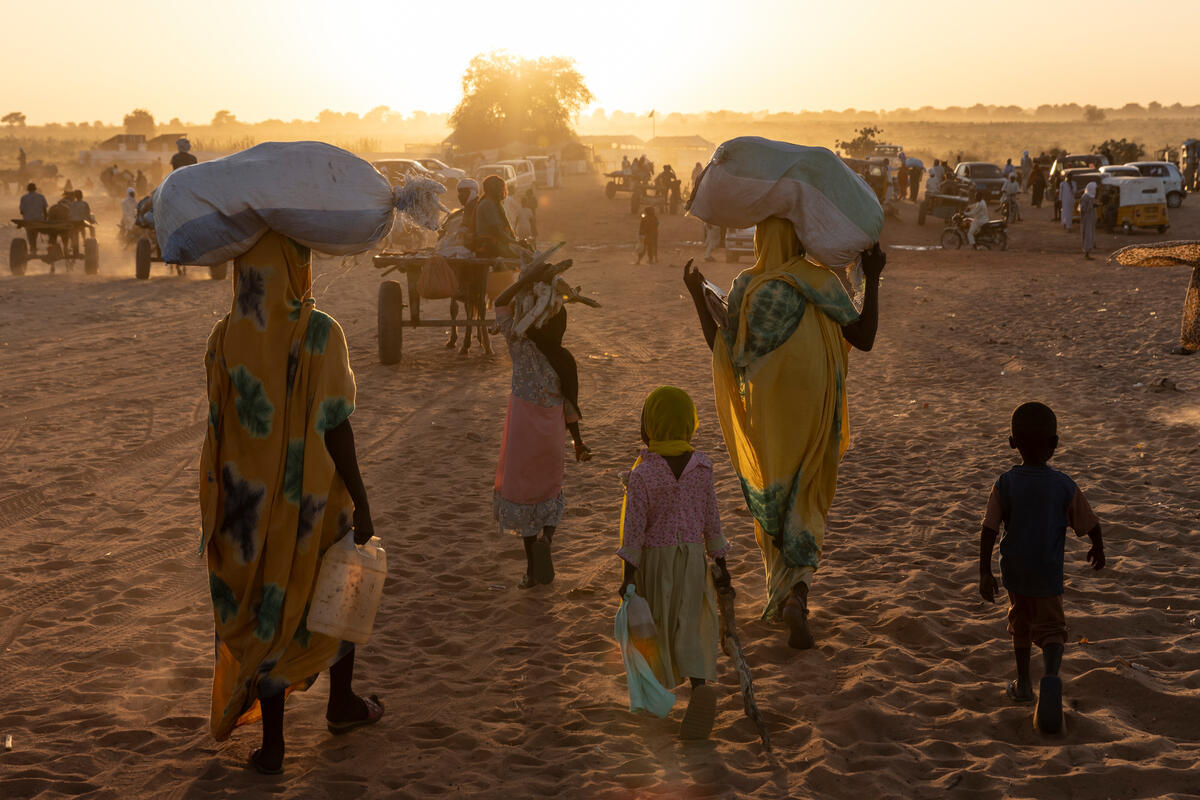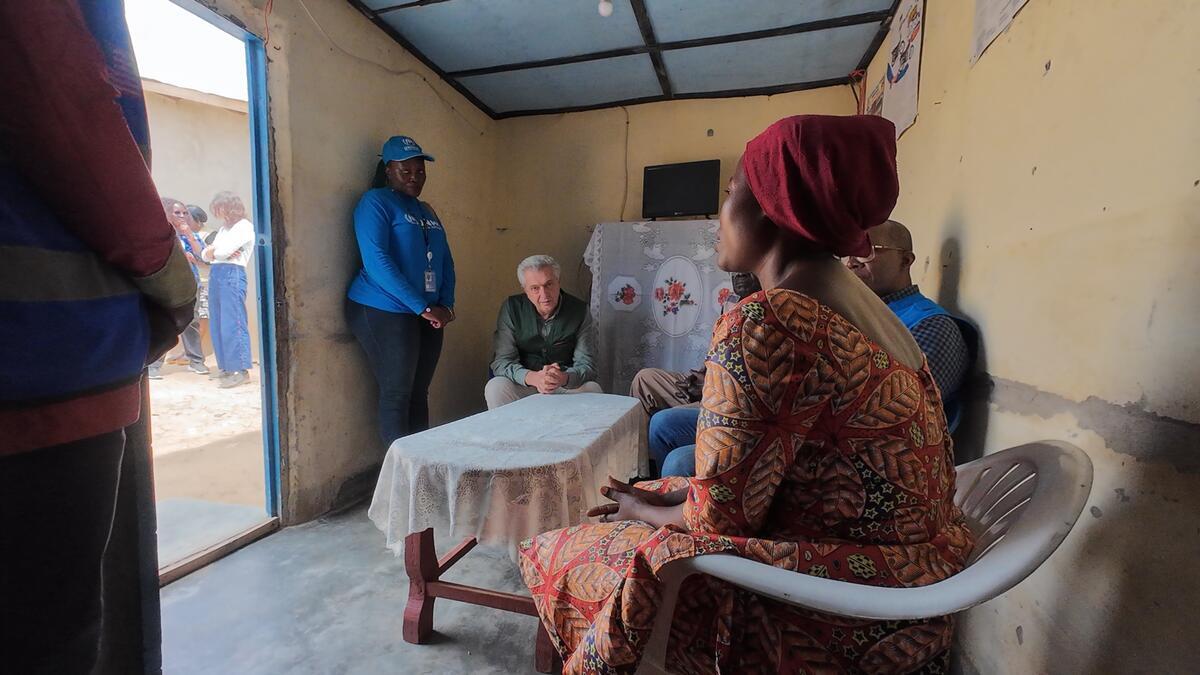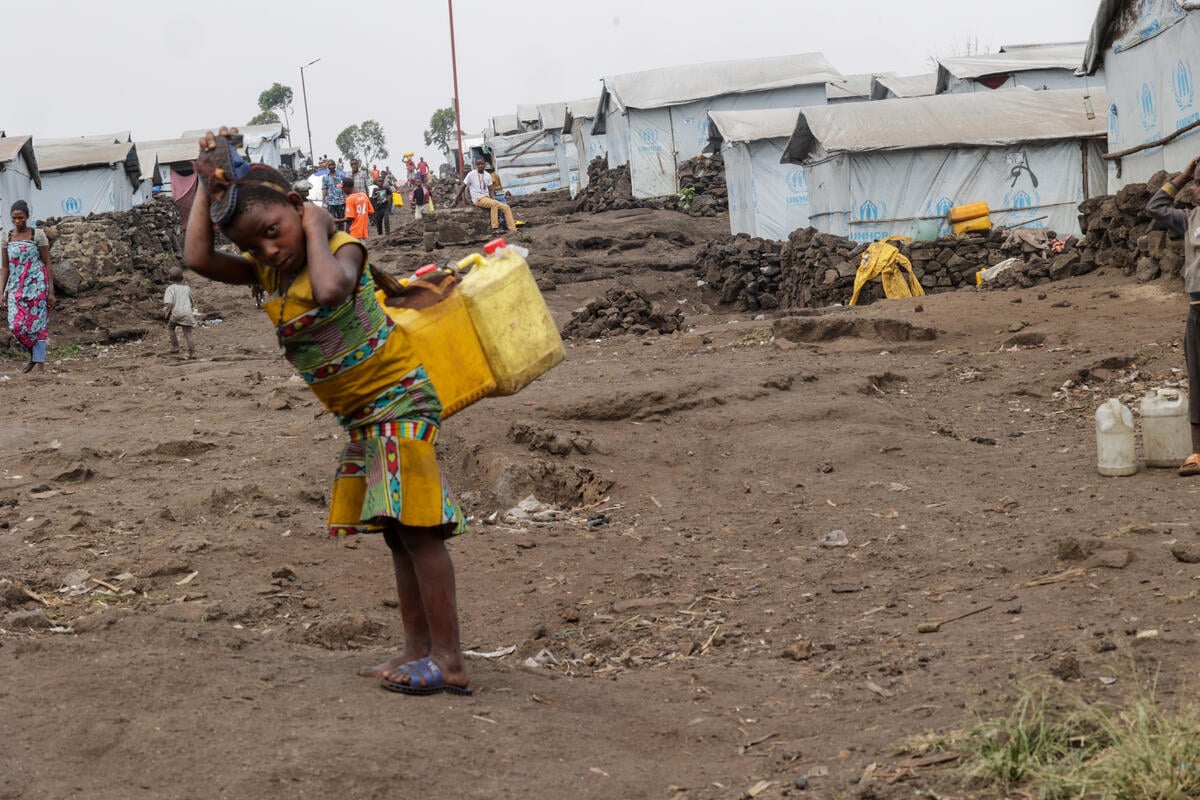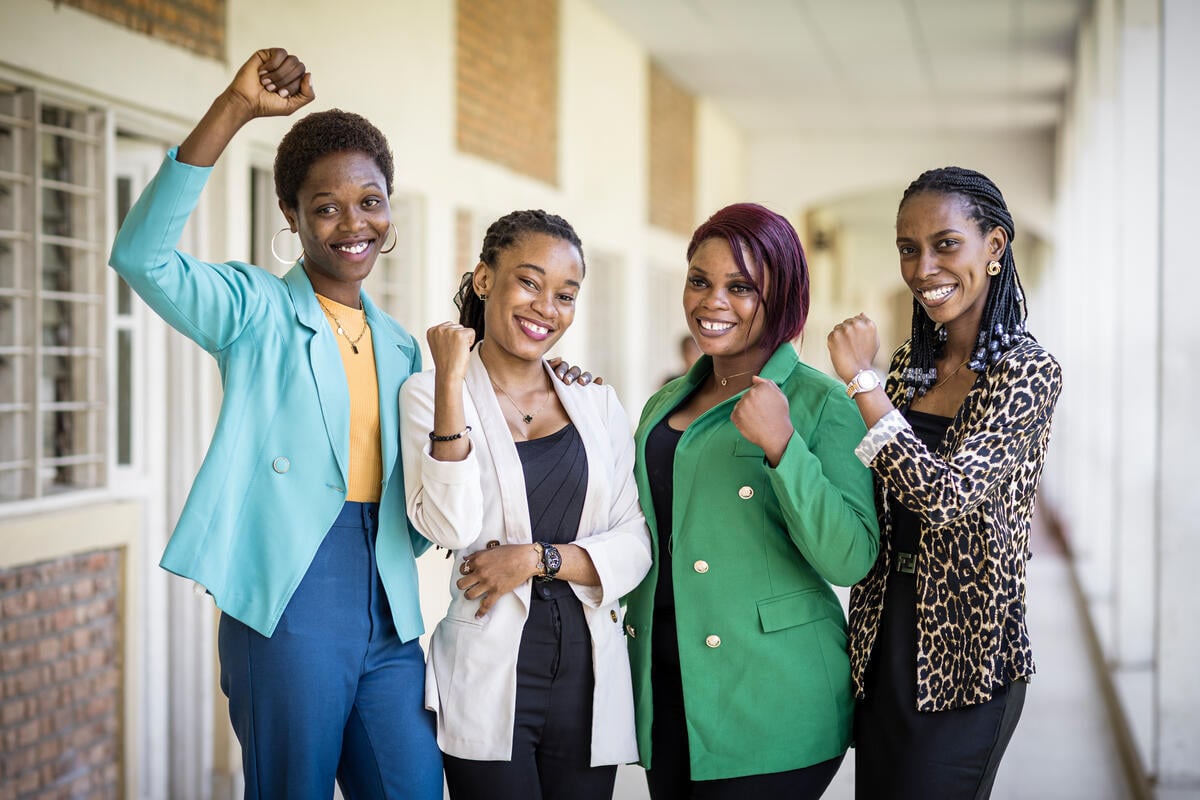Congolese refugee music-lover charts his way to success
Congolese refugee music-lover charts his way to success

Music has always been part of Jeremiah Mbaha's life. Now the Congolese refugee is using it to help others in Uganda.
KAMPALA, Uganda, September 25 (UNHCR) - Music has always been part of Jeremiah Mbaha's life, even when he had almost nothing. "I have been singing since my childhood. I could sing anything and I could see people felt warm and happy," said the 43-year-old Congolese refugee.
At 12 years old he began playing drums and guitar and joined his first band when he was 21. Twelve years later, he was a refugee in Uganda with his wife and six children after fleeing lawlessness and combat in eastern Democratic Republic of the Congo (DRC). "The only thing I took was my acoustic guitar because I loved music and I knew that in the future I had to do something with music," he told UNHCR in Kampala.
It took some time, but Jeremiah's instinct was right about music and he has since used his gift to make a name for himself, release a CD of his songs, provide aid to other refugees and set up a forum for artists in exile with help from UNHCR and the agency's partners.
Life was tough for Jeremiah and his family after they arrived in Kampala, a long way from home and worried about the future. They spent their first night sleeping in the open in Kampala's Arua Park.
The next day a kindly Ugandan told them where they could be registered as refugees, and then Jeremiah looked for work in a country where refugees have the right to travel and find employment.
In his home village, Jeremiah was a hairdresser and he was offered work on commission at a hair salon near Arua Park. "It was a hard time for me because in the beginning I didn't have clients. Often I made nothing and the baby was just three months old," he recalled.
But he did have his music. "In the church where I went to sing, the children drummed on the table and people felt happy when we were playing and we made a lot of friends," he said. They formed a group, Jemba Vision, now comprising 11 refugees and a Ugandan dancer.
Some of Jeremiah's friends collected money so he could record his first single, "Tu ijenge Africa" ("Let's build Africa") in Kiswahili. "I was trying to give a message of peace to the Great Lakes of Africa region," he said, adding that the song was played by the BBC.
Encouraged, he recorded an album of 10 songs, including "Mukimbizi," which means refugee and tells of the plight of the forcibly displaced. Jeremiah also released "God Bless Uganda" as a thank-you to the host country.
Then he started to think bigger. "I got the idea of helping fellow refugees in the settlement by doing charity concerts to collect used clothes for them. I called it 'Dress a Refugee,'" Jeremiah explained.
The first concert, performed earlier this year in Kampala, was a great success and brought the music of Jeremiah and Jemba Vision to a bigger audience, including the UN refugee agency. They also managed to collect four boxes of clothes, which were distributed in the Kyaka refugee settlement with the help of a UNHCR implementing partner, InterAid.
With the encouragement of UNHCR and InterAid, Jeremiah agreed to help other refugee artists in urban areas and last October set up the Forum Artists Association of Refugees in Uganda. "We come together to discuss ideas," he explained.
To date, the artists have organized concerts in Kampala to mark World Refugee Day (June 20) and International Youth Day (August 15). Jeremiah is president of the association and provides guidance to members.
"I have told them that we must be disciplined and, with the money we get from the concerts, we need to invest in the association. I have made a work plan and we want to buy speakers, amplifiers - everything we need for a live band," he said. He wants to organize a concert every three months.
"These concerts will help us to expand and they will change our lives. I trust that if we are successful, we will find support," said Jeremiah, looking to the future. As to his own, if it takes him back to the DRC or somewhere else, he knows that music will have a central part.
By Karen Ringuette in Kampala, Uganda
Listen to Jeremiah on https://www.youtube.com/watch?v=zqe5fmGiwu0&feature=youtu.be

